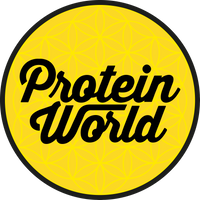
YOUR REAL LIFE WEIGHT LOSS SCENARIOS AND SOLUTIONS
Breakfast, bloating and stress? Just some of the topics that are up for discussion in the Protein World Community group. If you haven’t joined our community yet then why not? If you are on your own weight loss journey there is no better place than to gain support and motivation. It's also a great place to have all of your own queries answered. Losing weight is never easy, but the Community is managed by our Protein World experts who can offer valuable advice to help you reach your goals! Here are some examples of real questions asked in the Protein World Community which have been answered by in-house nutritionist Faye Townsend.

PW Nutritionist Faye: Stress can massively impact on our ability to lose weight. Whether this is stress caused by our professional or personal lives, or even the stress of being unhappy about weight or negative eating behaviours, our cortisol (stress hormone) levels increase as a result. If cortisol levels remain high on a daily basis, then our body goes into survival mode, preparing to embrace the stress and slowing down our metabolism. This results in an increased appetite and the body starts to store more which contributes to unwanted inches around your waist.
To help calm those hormones down and nix that belly sabotage, try to engage in stress relieving activities such as yoga, meditation or taking a nice hot bath.



PW Nutritionist Faye: The fluctuation of oestrogen and progesterone hormones causes fluid retention, swelling and uncomfortable feeling of bloating. During the menstrual cycle women gain water weight due to the ability of oestrogen to cause fluid to be retained. Whilst you can't prevent the increase in hormones you can eliminate factors that will increase fluid retention and bloating:
Lay off the salt
Whilst we need sodium in our diet to regulate fluid balance outside of our cells and to sustain normal nerve impulses, unnecessary amounts of sodium will cause you to retain water.
When excessive amounts of sodium are consumed, sodium begins to accumulate in blood. Sodium binds to water in the blood stream which increases blood pressure and causes skin to appear puffy and bloated.
Bloating can be prevented by limiting the consumption of processed foods and table salt. Low salt foods don’t need to be tasteless or bland. Flavour your food with pepper, herbs, garlic and spices instead.
Keep hydrated
You may think that restricting your water intake will reduce the bloat, but in fact dehydration causes your body to hold onto water (just like it does with fat). You should aim to drink 2-3 litres a day. If you struggle, try adding fresh lemon or cucumber to your water to give it that added taste.

PW Nutritionist Faye: Breakfast literally means “breaking the fast”. Overnight our bodies exhaust our glycogen stores (aka energy stores). Breakfast is the first opportunity to refuel those stores, therefore if you skip it then our bodies go to the next best option - our fat stores. This is not a good thing because fat does not work as good as glycogen in providing fast energy. It leaves you feeling more prone to fatigue and because our brains also function using glycogen, it means our brains will also not be operating at its optimum either.
Establishing a regular eating pattern has been shown to improve glycemic control, reduce likelihood of weight gain and curb hunger pangs. Breakfast is the time in the day where you can set yourself up for the day, so choose a balanced healthy dish that will energise you and fuel your morning. Try to build a breakfast combining complex carbs, protein and healthy fats. A good example would be poached eggs on a slice on whole-meal toast and avocado or Slender Porridge.
If you haven’t already, join our Facebook Protein World Community here for motivation, support and guidance to help you on your journey.
TASTY PRODUCTS TO INCREASE YOUR PROTEIN INTAKE
OTHER STORIES

YOUR REAL LIFE WEIGHT LOSS QUESTIONS ANSWERED
Breakfast, bloating and stress? Just some of the topics that are up for discussion in the Protein World Community group. If you haven’t joined our community yet then why not? If you are on your own weight loss journey there is no better place than to gain support and motivation. It's also a great place to have all of your own queries answered. Losing weight is never easy, but the Community is managed by our Protein World experts who can offer valuable advice to help you reach your goals! Here are some examples of real questions asked in the Protein World Community which have been answered by in-house nutritionist Faye Townsend.

PW Nutritionist Faye: Stress can massively impact on our ability to lose weight. Whether this is stress caused by our professional or personal lives, or even the stress of being unhappy about weight or negative eating behaviours, our cortisol (stress hormone) levels increase as a result. If cortisol levels remain high on a daily basis, then our body goes into survival mode, preparing to embrace the stress and slowing down our metabolism. This results in an increased appetite and the body starts to store more which contributes to unwanted inches around your waist.
To help calm those hormones down and nix that belly sabotage, try to engage in stress relieving activities such as yoga, meditation or taking a nice hot bath.



PW Nutritionist Faye: The fluctuation of oestrogen and progesterone hormones causes fluid retention, swelling and uncomfortable feeling of bloating. During the menstrual cycle women gain water weight due to the ability of oestrogen to cause fluid to be retained. Whilst you can't prevent the increase in hormones you can eliminate factors that will increase fluid retention and bloating:
Lay off the salt
Whilst we need sodium in our diet to regulate fluid balance outside of our cells and to sustain normal nerve impulses, unnecessary amounts of sodium will cause you to retain water.
When excessive amounts of sodium are consumed, sodium begins to accumulate in blood. Sodium binds to water in the blood stream which increases blood pressure and causes skin to appear puffy and bloated.
Bloating can be prevented by limiting the consumption of processed foods and table salt. Low salt foods don’t need to be tasteless or bland. Flavour your food with pepper, herbs, garlic and spices instead.
Keep hydrated
You may think that restricting your water intake will reduce the bloat, but in fact dehydration causes your body to hold onto water (just like it does with fat). You should aim to drink 2-3 litres a day. If you struggle, try adding fresh lemon or cucumber to your water to give it that added taste.

PW Nutritionist Faye: Breakfast literally means “breaking the fast”. Overnight our bodies exhaust our glycogen stores (aka energy stores). Breakfast is the first opportunity to refuel those stores, therefore if you skip it then our bodies go to the next best option - our fat stores. This is not a good thing because fat does not work as good as glycogen in providing fast energy. It leaves you feeling more prone to fatigue and because our brains also function using glycogen, it means our brains will also not be operating at its optimum either.
Establishing a regular eating pattern has been shown to improve glycemic control, reduce likelihood of weight gain and curb hunger pangs. Breakfast is the time in the day where you can set yourself up for the day, so choose a balanced healthy dish that will energise you and fuel your morning. Try to build a breakfast combining complex carbs, protein and healthy fats. A good example would be poached eggs on a slice on whole-meal toast and avocado or Slender Porridge.
If you haven’t already, join our Facebook Protein World Community here for motivation, support and guidance to help you on your journey.









